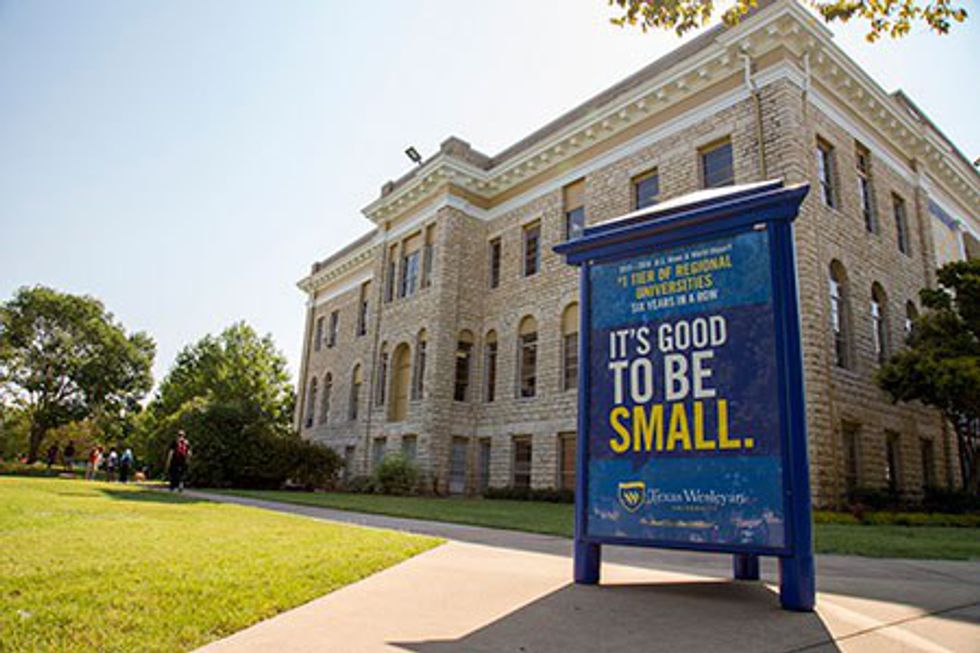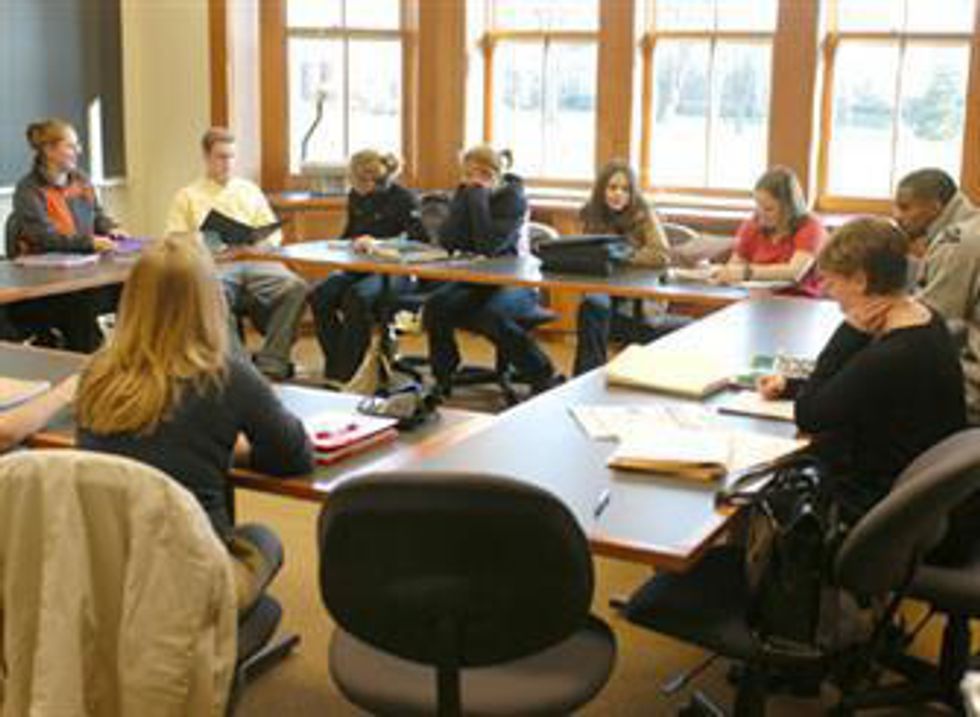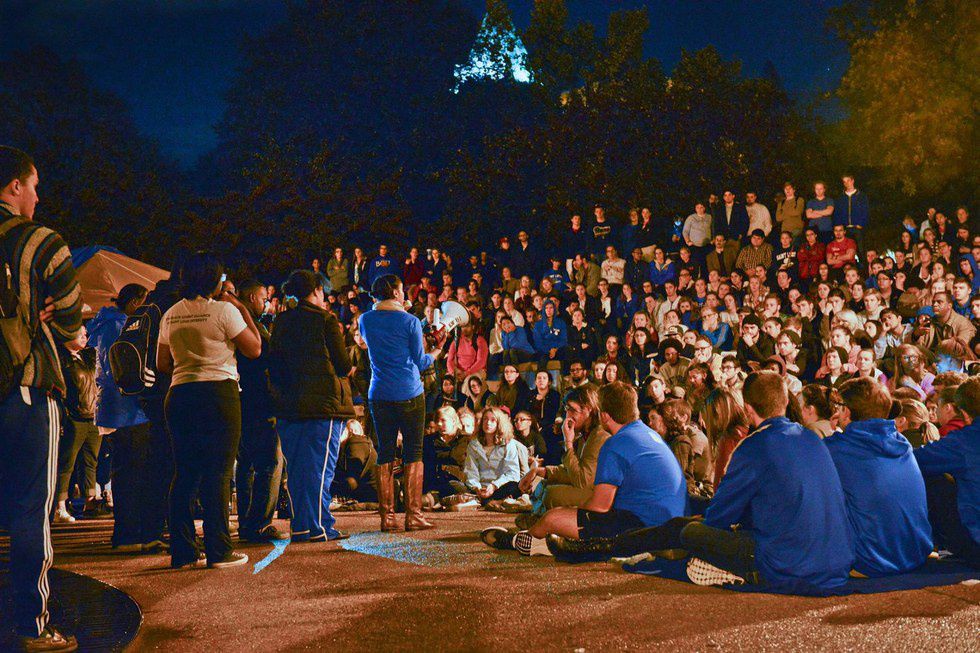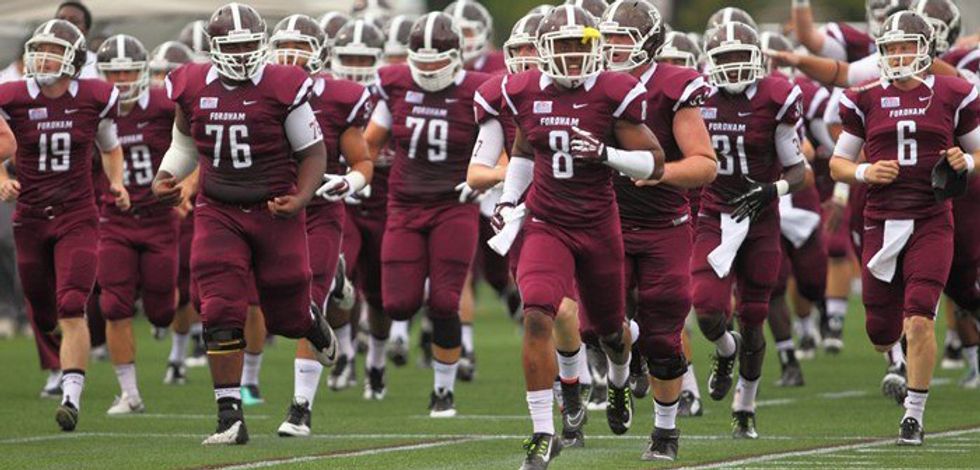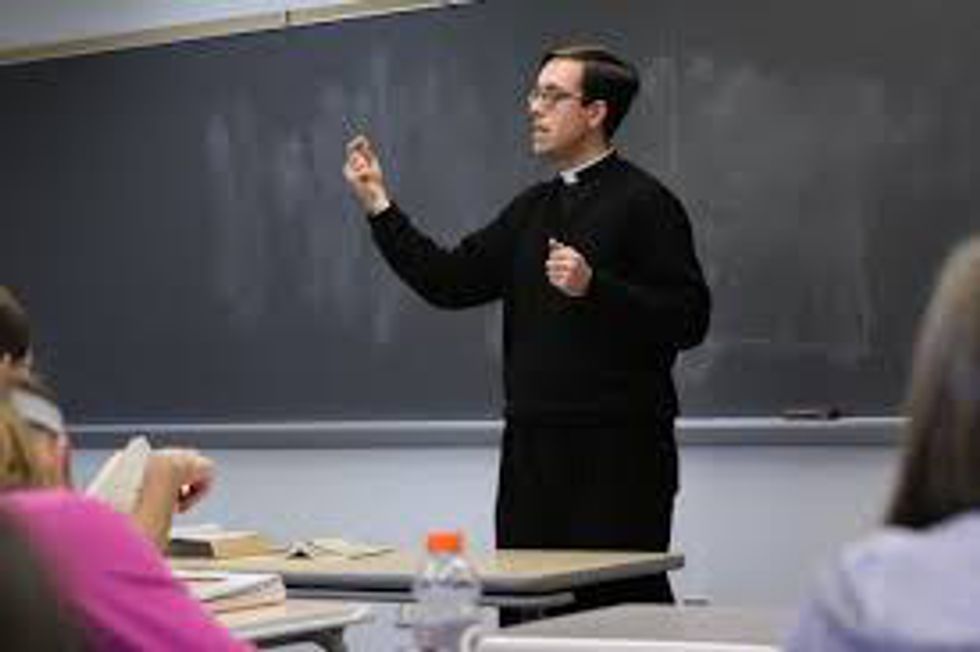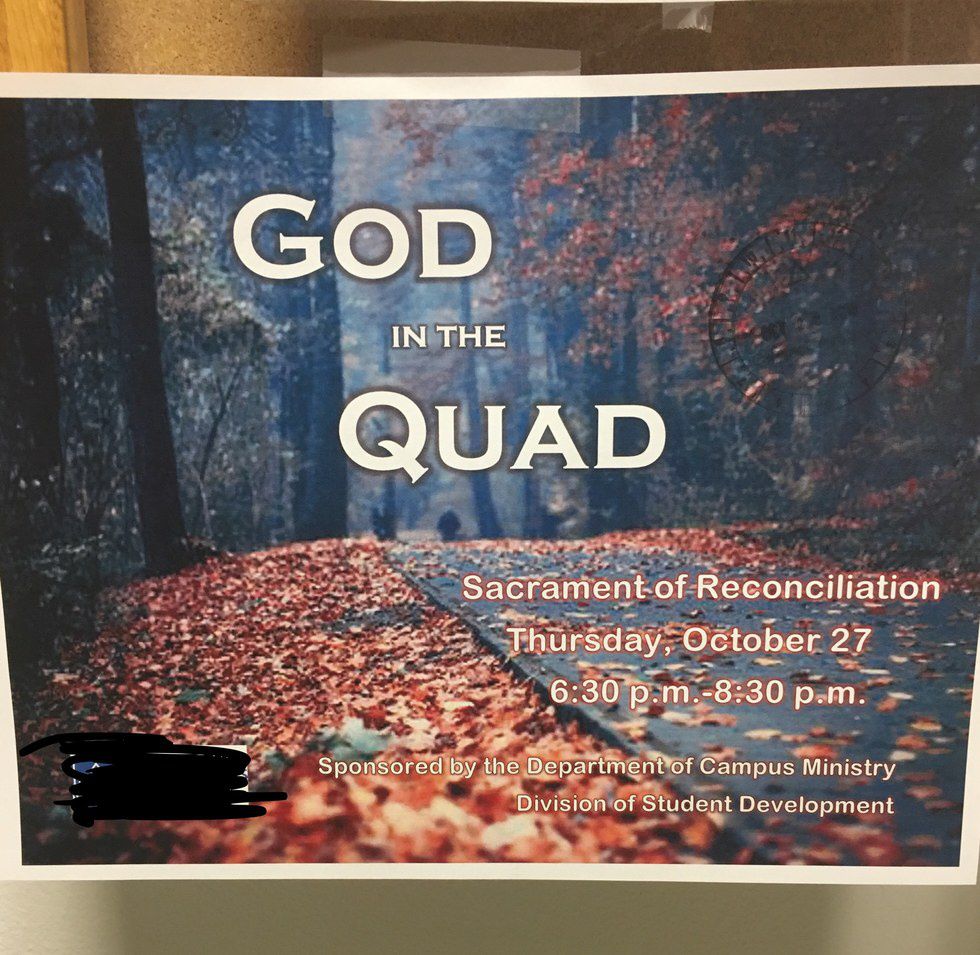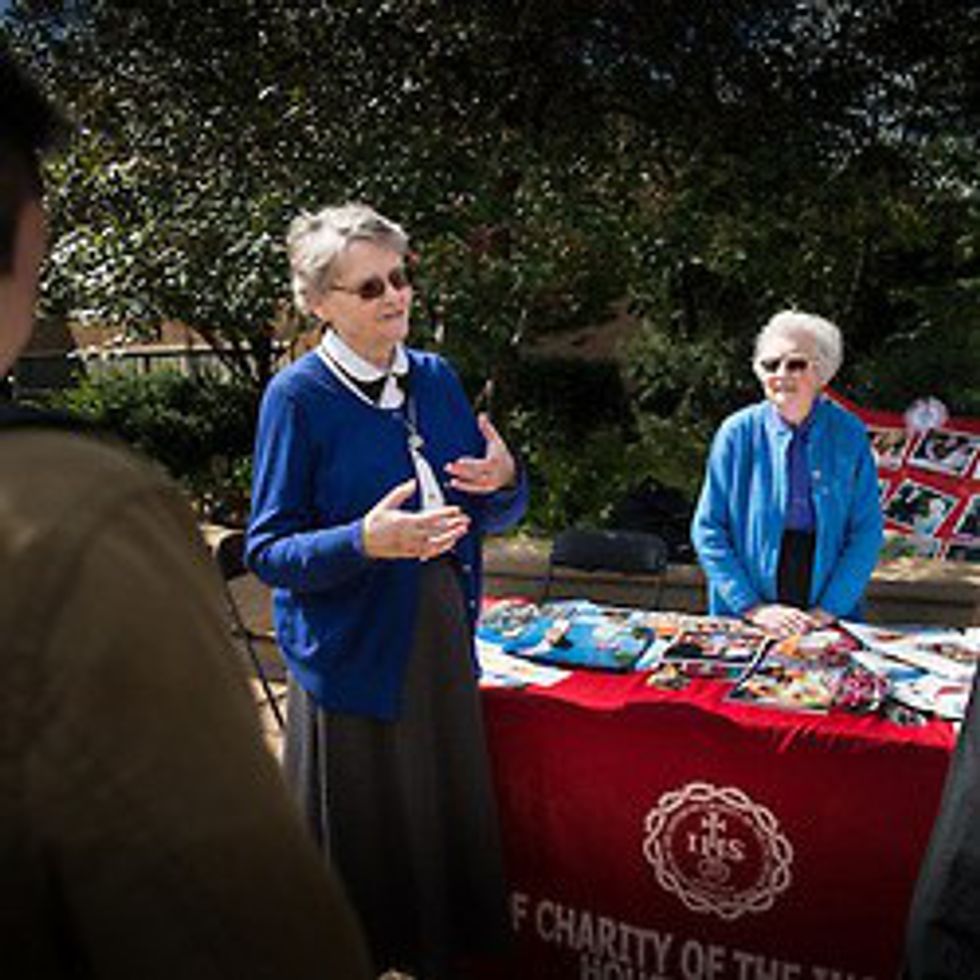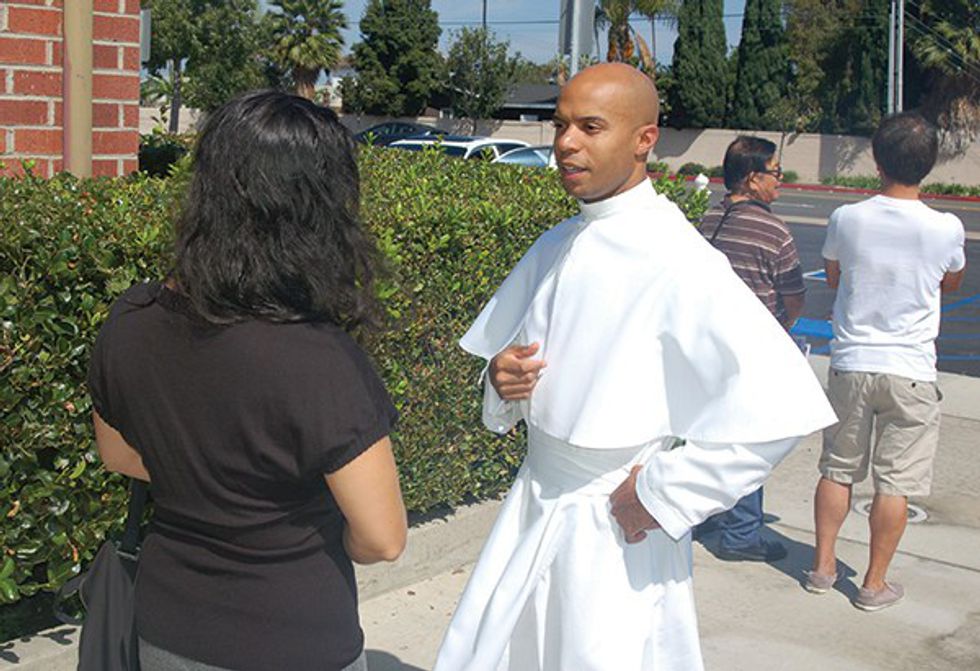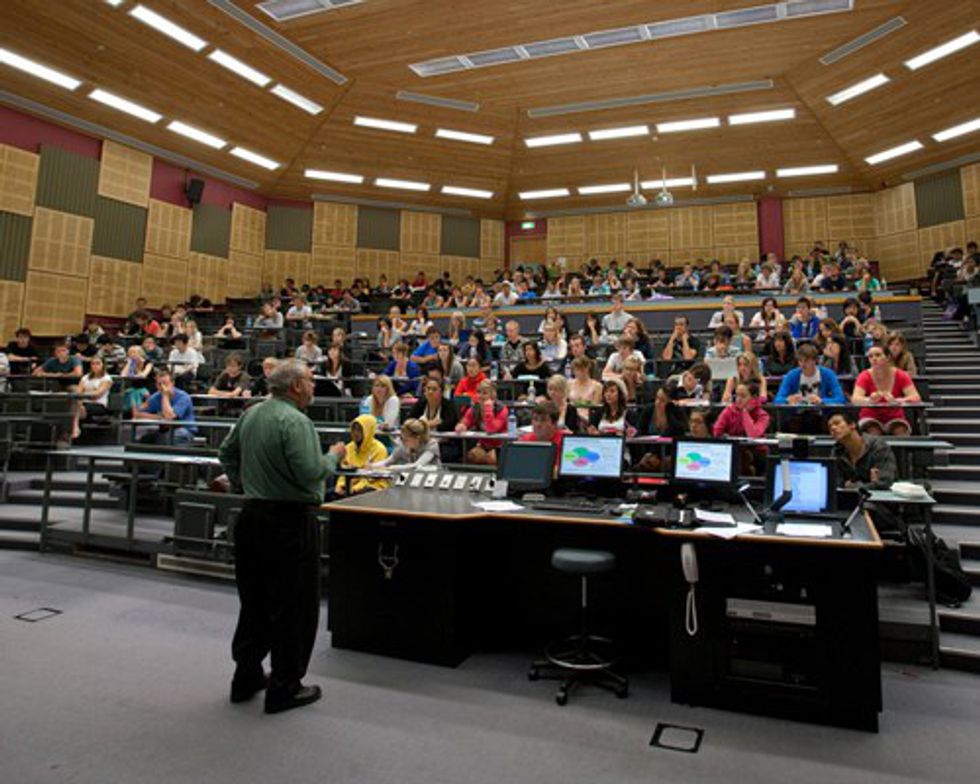Whether or not people realize it, Catholic education can go far beyond a plaid skirt. The U.S. is home to 28 Jesuit Universities (and 2 associates), and roughly 217,000 college students call one of these Jesuit Universities "home." Since a Jesuit education is only one branch of Catholic schooling, many misconceptions accompany it. So for those who don't really understand what comes with a Jesuit higher education, here are a few points of insight:
1. Our schools are on the smaller side.
Jesuit schools in the U.S. have enrollments between 1,500 and 17,000 students, averaging around 8,000 students per campus. This makes Jesuit schools minuscule compared to most state universities, which typically enroll around or over 35,000 students.
2. And our classes are smaller, too.
Although a few classes are still taught in 300-student, lecture-hall form, the average class size at a Jesuit university usually falls around 25 students.
3. No, a Jesuit university is not the same as a Catholic university.
The Jesuits are just one order of Catholic priesthood. They have their own developed methods and ideas that align with, but are unique within, the general Catholic Church.
4. Our schools are actually pretty diverse.
The Catholic Church is known for having distinct viewpoints on many political and cultural issues. Despite this, Christians are all taught to "love thy neighbor as thyself," and therefore, tolerance and acceptance are widely promoted on Jesuit campuses. St. Louis University, for example, is home to students from all 50 states and 77 foreign countries. Many Jesuit universities welcome various non-denominational Christian groups, Muslim student associations, Rainbow alliances, and other racial, political, and religious groups that spread far beyond the Catholic Church on their campus.
5. Our universities are rooted in history.
The majority of these universities were founded during the 1800s, but the U.S.'s oldest Jesuit university is Georgetown University, founded in 1789. The most recently founded Jesuit university was established in 1954 as Wheeling Jesuit University. These universities take pride in their past, while still moving forward with society and withstanding the test of time.
6. Body. Mind. Spirit.
For people who have received Jesuit education, no elaboration is necessary. But for those who haven't, allow me to explain: Jesuits promote the education and health of the "whole person" which can be divided into three parts-- body, mind, and spirit. This focus on and concern for well-being beyond academic success is an essential part of what it means to attend a Jesuit school.
7. We probably don't have a football team.
Unless you happen to be one of the three Jesuit universities who do (go Boston College, Fordham, and Georgetown!). Don't worry, though-- most schools have other sports teams to cheer on!
8. Yes, sometimes our teachers are priests.
Every lecture isn't like a sermon, however. Jesuit priests are known for being the most liberal order of Catholic clergy-- their open mindedness, worldliness, and passion for learning make them excellent professors.
9. We have a lot of conversations about religion and spiritual views.
Since such a vital part of Jesuit education is focused on "spirit," it tends to come up often in casual conversation! Whether it's conversing with your friends or with a faculty member, no topic is off-limits, and you become very comfortable with expressing your viewpoints, knowing that you will be accepted.
10. We see posters like this around campus.
And think nothing of it. As stated before, no topics are off-limits, and people are encouraged to delve into their spiritual-self, whatever it may be.
11. You can probably observe a flood of people headed to the college church at some point on Sunday.
Chances are, it correlates to the time of the student mass. It's hard to believe that this many college students make time to attend church every week-- whether they are Catholic or not!
12. We have definitely speed-walked through our share of vocation fairs.
At the start of each school year, just like there is an activity fair, many Jesuit schools also have a vocation fair. While we may not feel guilty dodging through tables of clubs and activities on our way to class, try swerving around a group of nuns asking to speak with you. It's not easy. We want to speak with these sweet people, but legitimately don't have time to do so.
13. Seeing clergy in their habits doesn't phase us.
We might even have a few clergy members in your classes. It's just an outfit. People don't judge me for the dirty sweatpants and oversized t-shirt I'm currently wearing (even though you wouldn't blame them if they did), so just take note and move on.
14. We've taken a theology course or two.
This actually turns out to be one of our bigger classes, because no matter what our major, it's in the college's core requirements. Turns out, it was actually pretty interesting.
15. We know who Ignatius of Loyola is.
Oh, dear Iggy. It took getting hit by a cannonball for him to have a change in faith. We know this because we've spent at least a few of those theology class periods covering him. If he ever comes up in a trivia night, we have it covered.
16. No, religion isn't shoved down our throats.
Even the Jesuit's three-pillar education doesn't include religion. "Spirit" is much different. No matter what god you believe in, or if you believe in a god at all, everyone has a spirit. Spirit is defined as "the nonphysical part of a person that is the seat of emotions and character." If religion plays a part in your life, then it plays a part in your spirit. If it doesn't, then your spirit is just a combination of your other wonderful attributes.
17. Yes, we still have fun.
We aren't any different from the average college student. We don't always make the best decisions, but always end up paying for them. There's no added shame in hiking to that theology class with a wicked hangover.
18. We wouldn't have it any other way.
All-in-all, we love our universities and can feel ourselves growing and learning in more ways than we could have ever imagined. Okay, so maybe we wish tuition was a little lower, but everyone has student loans after college... right?




